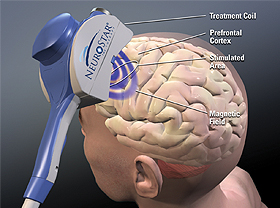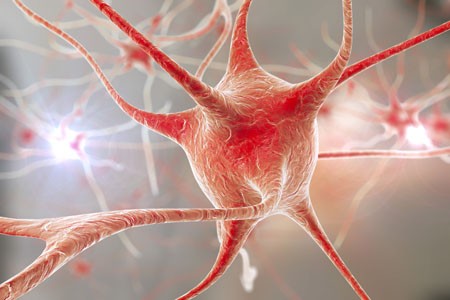Cannabis Use May Cause Schizophrenia
 Cannabis use has been linked to schizophrenia risk, and new genetic research suggests a causal relationship between the two. In a 2017 article in the journal Molecular Psychiatry, researcher Julian Vaucher and colleagues reported that lifetime cannabis use was linked to schizophrenia even when the researchers controlled for 10 genotypes weakly associated with lifetime cannabis use. This makes it unlikely that the schizophrenia caused the cannabis use, suggesting instead that it is the cannabis use that leads to a schizophrenia diagnosis.
Cannabis use has been linked to schizophrenia risk, and new genetic research suggests a causal relationship between the two. In a 2017 article in the journal Molecular Psychiatry, researcher Julian Vaucher and colleagues reported that lifetime cannabis use was linked to schizophrenia even when the researchers controlled for 10 genotypes weakly associated with lifetime cannabis use. This makes it unlikely that the schizophrenia caused the cannabis use, suggesting instead that it is the cannabis use that leads to a schizophrenia diagnosis.
Vaucher and colleageus also controlled for genetic associations between cigarette smoking and cannabis use to eliminate cigarette use as a third variable causing the association between cannabis and schizophrenia.
The study by Vaucher and colleagues included 34,241 people with schizophrenia and 45,604 healthy controls.
Omega-3 Fatty Acids May Be Helpful Early in Schizophrenia, But Not Later
 Some studies have suggested that omega-3 fatty acids may be helpful in the treatment of schizophrenia, but data to support this idea have been inconsistent. A recent meta-analysis of research on omega-3s and schizophrenia suggests that this nutritional supplement might be more useful in early-stage schizophrenia than in later illness.
Some studies have suggested that omega-3 fatty acids may be helpful in the treatment of schizophrenia, but data to support this idea have been inconsistent. A recent meta-analysis of research on omega-3s and schizophrenia suggests that this nutritional supplement might be more useful in early-stage schizophrenia than in later illness.
At the 2016 meeting of the Society of Biological Psychiatry, researchers led by Alexander T. Chen presented the findings of their meta-analysis. First they analyzed six studies that shared a common scale for measuring schizophrenia symptoms. In these studies, omega-3 fatty acids did not outperform placebo when used as an add-on treatment to antipsychotics for people with schizophrenia.
In four remaining studies of omega-3 fatty acids and schizophrenia, the omega-3s were associated with improvement only in patients in the early stages of schizophrenia. Compared to placebo, the supplements decreased non-psychotic symptoms, decreased the dosage of antipsychotic medication patients required, and improved early treatment response (but not late treatment response) in patients in their first episode of schizophrenia.
In the same study, omega-3 fatty acids also reduced conversion to full-blown schizophrenia and psychotic symptom severity in patients at high risk for schizophrenia who were having preliminary symptoms of the illness.
Editor’s Note: Researcher Paul E. Keck has also found that omega-3 fatty acids may be more effective early in bipolar disorder rather than later. He reported that younger patients with bipolar depression and rapid cycling showed more improvement when taking the omega-3 fatty acid EPA than when taking placebo. In contrast, patients with bipolar depression who were over the age of 45 did worse on EPA than on placebo.
Part of the ambiguity about whether omega-3 fatty acids can help treat or prevent mental illness may be explained by the supplements working better in younger people or earlier in the course of an illness.
Kynurenine Pathway Suggests How Inflammation is Linked to Schizophrenia
The kynurenine pathway describes the steps that turn the amino acid tryptophan (the ingredient in turkey that might make you sleepy) into nicotinamide adenine dinucleotide. This pathway might be a connection between the immune system and neurotransmitters involved in schizophrenia.
A recent autopsy study by researcher Thomas Weickert and colleagues explored this link by determining that in the brains of people with schizophrenia and high levels of inflammation, messenger RNA for Kynurenine Aminotransferase II (KATII, a step on the kynurenine pathway) was elevated in the dorsolateral prefrontal cortex compared to the brains of people who died healthy and those with schizophrenia but low levels of inflammation.
The KATII mRNA levels also correlated with mRNA levels of inflammatory markers such as glial fibrillary acidic protein and interleukin-6.
Blood measures related to the kynurenine pathway also differentiated people with schizophrenia from healthy controls. People with schizophrenia had lower levels of tryptophan, kynurenine, and kynurenic acid in their blood. The low levels of kynurenic acid in the blood were correlated with deficits in working memory and smaller volume of the dorsolateral prefrontal cortex.
Weickert and colleagues suggest that blood levels of kynurenic acid might provide a measurable indicator of the degree to which people with schizophrenia are experiencing problems with executive functioning (planning and decision-making) and loss of brain volume.
Meta-Analysis Shows Inflammation is Common in Unipolar Depression, Bipolar Depression, and Schizophrenia
In a symposium at the 2016 meeting of the Society of Biological Psychiatry, Mark Hyman Rapaport described the results of his research group’s meta-analysis of studies comparing levels of inflammation in the blood of people with unipolar depression, bipolar depression, and schizophrenia. Rapaport and colleagues determined that people acutely ill with any of the three illnesses showed abnormally high levels of certain inflammatory proteins. These included: interleukin-1beta, interleukin-6, TNF alpha, and c-reactive protein. Those who were chronically ill showed elevations in interleukin-6.
These data are consistent with increasing evidence that inflammation also occurs in the brain. Brain inflammation can be observed by measuring translocator protein binding, a measure of brain microglial activation, using positron emission tomography (PET) scans.
Low Vitamin D Linked to Small Hippocampus & Schizophrenia
Low levels of vitamin D have been linked to schizophrenia in several studies. In one, infants with low vitamin D were more likely to develop schizophrenia in adulthood, but supplementation reduced this risk. A 2015 article by Venkataram Shivakumar and colleagues in the journal Psychiatry Research: Neuroimaging found that among patients with schizophrenia who were not currently taking (or in some cases, had never taken) antipsychotic medication, low levels of vitamin D were linked to smaller gray matter volume in the right hippocampus, an area involved in schizophrenia.
Vitamin D has neuroprotective effects and is important to normal brain development and function. Vitamin D is essential to the production of brain-derived neurotrophic factor (BDNF), a protein that is important for learning and memory, and vitamin D also reduces oxidative stress. BDNF deficiency and oxidative stress have both been linked to schizophrenia, and they both can cause abnormalities in the hippocampus.
Perinatal Choline Supplements May Reduce Risk of Schizophrenia
 Many psychiatric illnesses, including bipolar disorder, schizophrenia, autism, attention deficit hyperactivity disorder (ADHD), and anxiety disorders may stem from abnormalities in brain development that begin before birth. Researchers are trying to determine whether dietary supplements taken by pregnant mothers or infants can reduce the risk of such illnesses. At a recent scientific meeting, researcher Randal Ross and colleagues reported that compared to placebo, choline supplements reduced problems with a brain process called sensory gating in one-month-old infants and also improved the children’s attention span and social skills at age 3.
Many psychiatric illnesses, including bipolar disorder, schizophrenia, autism, attention deficit hyperactivity disorder (ADHD), and anxiety disorders may stem from abnormalities in brain development that begin before birth. Researchers are trying to determine whether dietary supplements taken by pregnant mothers or infants can reduce the risk of such illnesses. At a recent scientific meeting, researcher Randal Ross and colleagues reported that compared to placebo, choline supplements reduced problems with a brain process called sensory gating in one-month-old infants and also improved the children’s attention span and social skills at age 3.
Sensory gating is the process by which the brain filters out unimportant information, to avoid flooding higher cortical centers with irrelevant stimuli. Deficits in the way the brain inhibits response to this type of irrelevant information are associated with mental illnesses such as schizophrenia.
In Ross’s study, healthy pregnant mothers received either a placebo or 6300 mg of choline, a nutrient found in liver, egg yolks, and meat. After delivery, the infants also received 700 mg of supplemental choline per day. In children who carried CHRNA7, a risk gene for schizophrenia discovered by Ross’s colleague Robert Freedman, choline reversed the associated risk of sensory gating problems and normalized their behavior at age 3.
Guanfacine Improves Cognition in Schizophrenia
People with disorders on the schizophrenia spectrum often suffer cognition problems that affect skills such as the processing of information about people and social situations (social cognition) and the execution of plans (executive function). At the 2015 meeting of the Society for Biological Psychiatry, researcher Larry J. Siever reported that the drug guanfacine improved these types of thinking in people with disorders on the schizophrenic spectrum compared to placebo. Participants were enrolled in a 7.5-week training program to improve cognition.
Over-Pruning of Synapses May Explain Schizophrenia
A gene that plays a role in the pruning of synapses has been linked to schizophrenia. The gene encodes an immune protein called complement component 4 (C4), which may mediate the pruning of synapses, the connections between neurons. Researchers led by Aswin Sekar found that in mice, C4 was responsible for the elimination of synapses. The team linked gene variants that lead to more production of C4A proteins to excessive pruning of synapses during adolescence, the period during which schizophrenia symptoms typically appear. This may explain why the brains of people with schizophrenia have fewer neural connections. The researchers hope that future therapies may target the genetic roots of the illness rather than simply treating its symptoms.
Long-Acting Injectable Aripiprazole Approved for Schizophrenia
 In October, the US Food and Drug Administration (FDA) approved an injectable, long-acting version of the atypical antipsychotic aripiprazole for the treatment of adults with schizophrenia.
In October, the US Food and Drug Administration (FDA) approved an injectable, long-acting version of the atypical antipsychotic aripiprazole for the treatment of adults with schizophrenia.
The long-acting aripiprazole is administered every 4 to 6 weeks as an injection in the arm or buttocks. The company announced that it would begin releasing the drug immediately. The drug preparation for maintenance treatment is named Maintena while the preparation for acute treatment is named Aristada.
RTMS Improves Executive Function in Kids with Schizophrenia and Autism
 Researcher Stephanie Ameis reported at the 2015 meeting of the American Academy of Child and Adolescent Psychiatry that following repeated transcranial magnetic stimulation (rTMS), a treatment in which a magnetic coil placed over the scalp delivers electric pulses to the brain, children with schizophrenia and autism spectrum disorders showed improvements in executive function, including working memory. The rTMS treatment targeted the left dorsolateral prefrontal cortex.
Researcher Stephanie Ameis reported at the 2015 meeting of the American Academy of Child and Adolescent Psychiatry that following repeated transcranial magnetic stimulation (rTMS), a treatment in which a magnetic coil placed over the scalp delivers electric pulses to the brain, children with schizophrenia and autism spectrum disorders showed improvements in executive function, including working memory. The rTMS treatment targeted the left dorsolateral prefrontal cortex.






